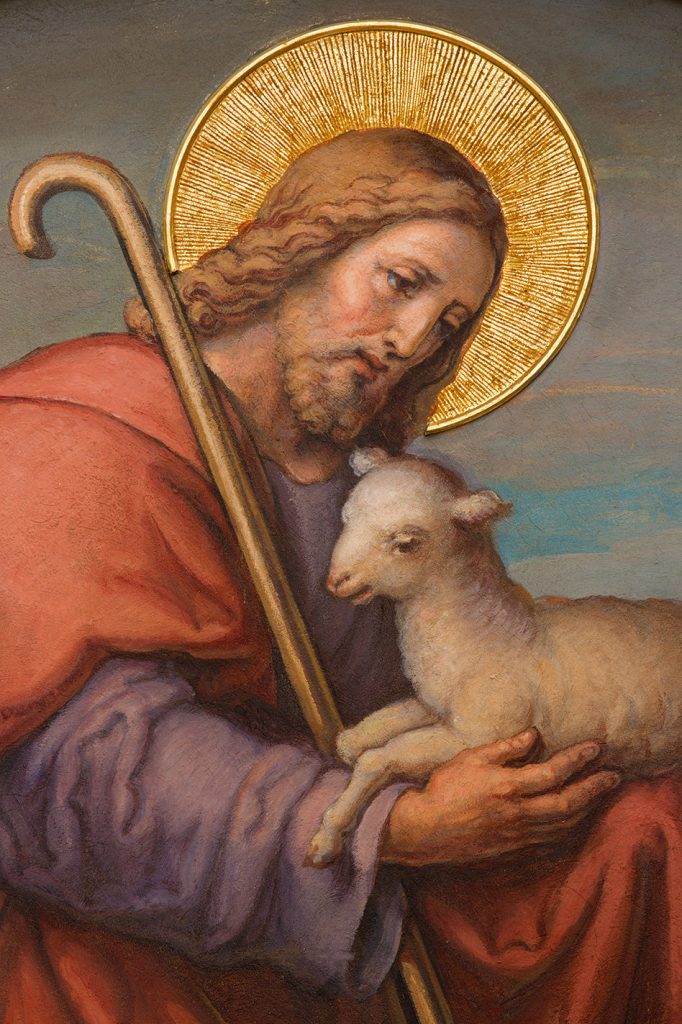CNN is still trying to “find” Jesus, so far with mixed results. The multi-part series, “Finding Jesus,” which began several weeks ago with an investigation of the Shroud of Turin’s veracity or lack thereof, has recently delved into the life of John the Baptist, the “Gospel of Judas” and the alleged existence of Jesus’ extended family of brothers and sisters.
Answers are attempted via science, technology and theological expertise, but the end result only proves we are all a race of “rock tappers.” Like Moses before us, any number of wonders God has provided us — the very life he granted us — is not always enough. We have to double-check on things.
A series like “Finding Jesus” is appealing to networks because it has more than one constituency. Half the people are going to tune in to see religion debunked and the other half views in hope of having their faith confirmed.
Neither camp is going to walk away from their television sets fully satisfied; not because the faith cannot be adequately defended, but because its defense was not a priority to the makers of the series. They, and the experts featured in the series are more intent on appearing to be rational, unbiased scientific ascetics hovering just so high above those with more “primitive” views of the New Testament.
St. Paul summed this series up better than I could when he opined, “For Jews demand signs and Greeks seek wisdom” (1 Corinthians 1:23). At times, we all find ourselves in one or the other of these two aspects of human nature.
The first episode of this series, on the Shroud of Turin, revealed a remarkable sign indeed and as we have discussed, there are sober and serious reasons to believe it may be the genuine article. We want the sign but we also want the wisdom, applying all of the most sophisticated scientific tools at our disposal to prove to ourselves.
The next two episodes were a combo plate of hits and misses … mostly misses. In an episode dedicated to John the Baptist, scientists test the DNA from two different relics claiming to be body parts of John … One proves to be the right age and the other one doesn’t. That’s about it.
They packed these two minutes worth of facts into a full hour of television speculating that Jesus maybe, kind of borrowed a lot of his teaching from John. On top of this sideways slight of Jesus, there was nothing much revelatory or noteworthy in this episode.
The episode on the “Gospel of Judas” reminded me of an incident where a literary critic reviewing a short story by Herman Melville decided to hinge his entire treatment of the work on one word in the story. The word turned out to be a misprint.
“Finding Jesus” spends most of an episode exploring the ancient texts known as the “Gospel of Judas” and by doing so, reveals a very different apostle from the man Matthew, Mark, Luke and John describe. Judas is essentially seen as the only one of the 12 who really “gets” it. He is rehabilitated and the evangelists come off as dubious chroniclers of the truth. Except, one of these experts examined the text more scrupulously and deduced one word in particular had been misinterpreted. The word was “demon” and the “Gospel of Judas” has Jesus calling Judas that. Oh … never mind.
The latest episode employs the highly dubious “Gospel of Thomas” to find the Lord a little brother, James. Much confusion over this stems from the use of the word “brother” in the real scripture.
But in “Finding Jesus,” the “Gospel of Thomas” is given parity with Matthew, Mark, Luke and John. No mention that it is in reality one of those pesky gnostic gospels Church fathers eventually rejected when they, along with the Holy Spirit, were actually putting the New Testament together.
Rejected by the fathers of the Church but treated with reverence and acceptance by the experts on “Finding Jesus,” who agree almost in unison that Jesus had brothers and sisters. The experts chose not to question some of the stranger elements of the “Gospel of Thomas,” like its bizarre view of women and the fact that all of the “secret” knowledge it claims to contain reads more like a Jedi Academy textbook.
Future installments of the series don’t bode well for people serious about their faith, as CNN promises to tell us everything we ever wanted to know about Mary Magdalene but were afraid to ask and investigate of relics of the true cross.
A wise priest once said the Bible is not a book about man looking for God but a book about God looking for man. Jesus is the shepherd and we are the sheep and it is the shepherd’s task to gather his flock or make himself known to them by his voice so they might embrace his sanctuary. If I was guest program director at CNN for a day, I might suggest renaming this series “Jesus Finding Us.”
In the end, first century manuscript experts, DNA analysis and even theology professors from the University of Notre Dame can be helpful for our faith but are by no means essential to it. What is integral for the care and feeding of our personal journeys is to keep our ears open and listen for the shepherd’s voice. What better way to celebrate the Easter season than to make the shepherd’s job easier.

